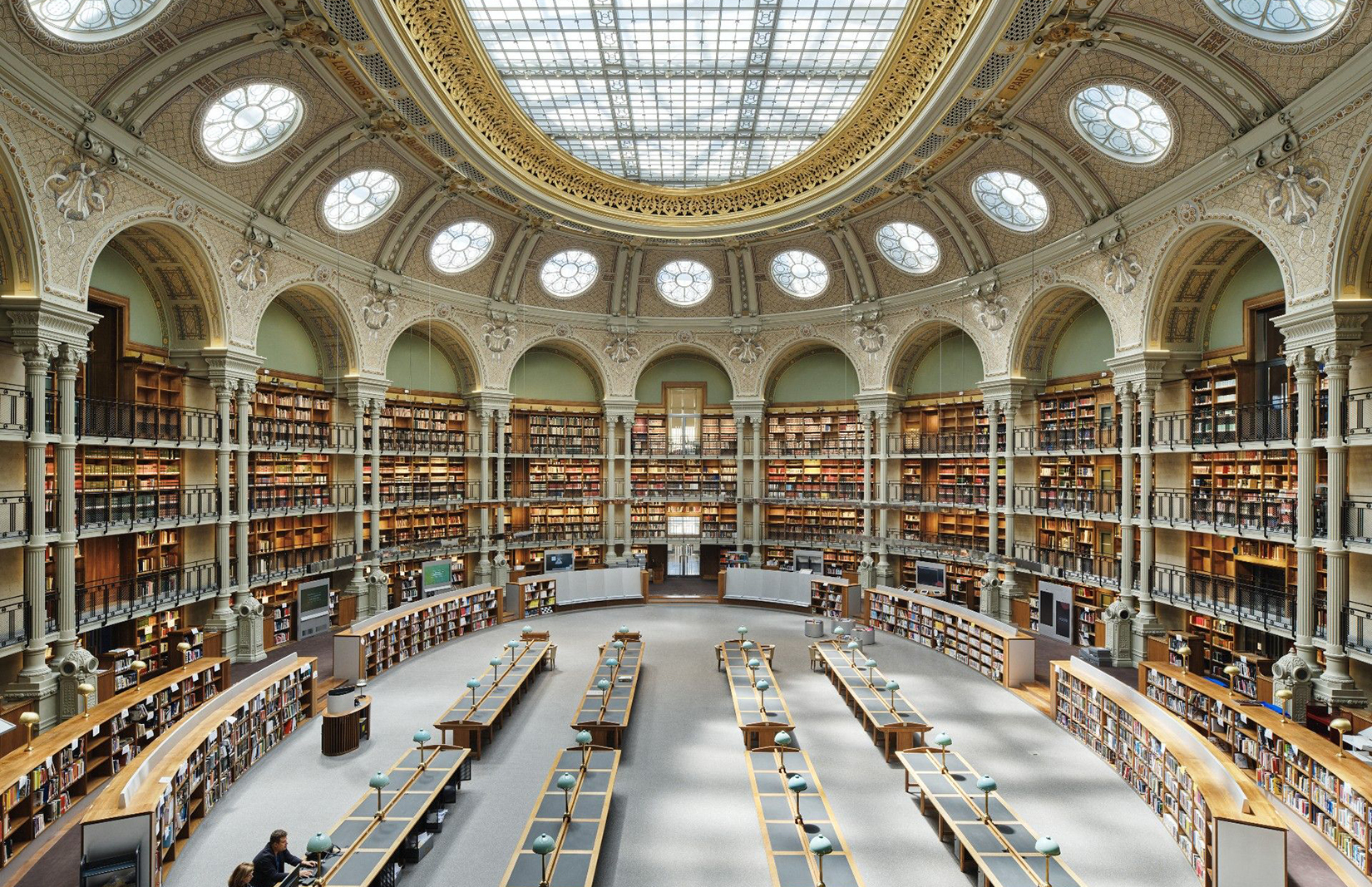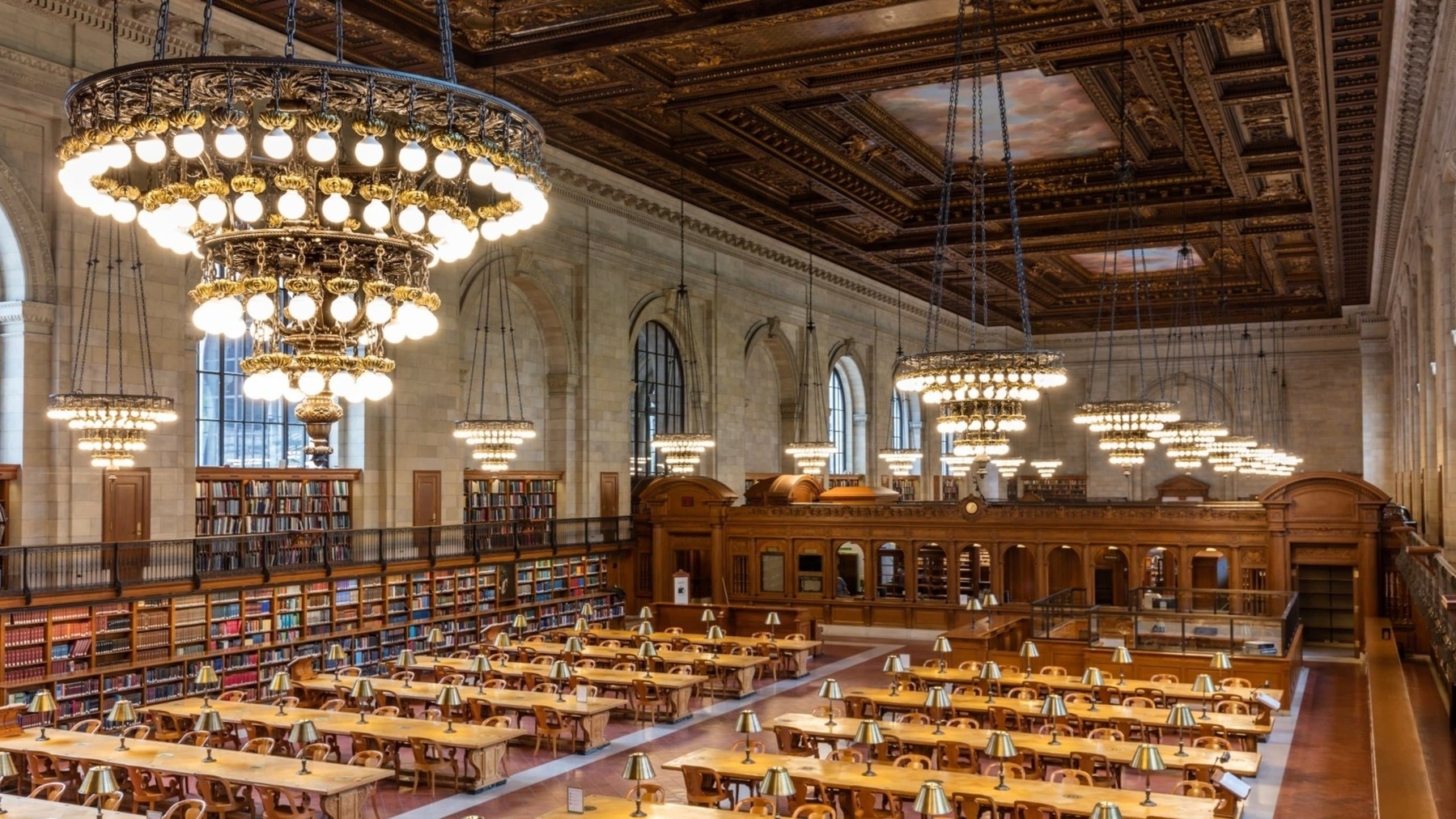On libraries

I have woken up thinking about libraries, as you do. My favourite library in the world is the London Library, as distinct from the British Library, which is also in London but is a completely different place.
I joined the London Library in 2018 and have spent more time working there, off and on, than anywhere else other than my desk at home. The place has also worked its way into most of the stories I have written in that time - it’s where Kennedy and Heawood do their research in the Lovecraft Investigations (and where I research the show), and there is a man in a small room at the back of the stacks who, if you offer up the correct passphrase, will give you a cup of drugged tea that will facilitate your journey to Themis House. (If none of that last part makes any sense to you, allow me to commend Aldrich Kemp to your kind attention)
Libraries are magical places, not just because of all the books, but because of the church-like atmosphere that the best ones possess.

In my essay “Bits of the Mind’s String”, I wrote about the New York Public Library:
New York Public Library, 3 April 2018
April 3, 2018. The New York Public Library. I hadn’t been to New York for at least a decade, and this was my first time here with my family. The trip was paid for with the proceeds of selling the TV script that the note in Paris had turned into. We were staying at the Algonquin, for the Dorothy Parker vibes. The hotel cat was sitting on the reception desk when we checked in and my daughter played with it. The cat was called Hamlet. The Algonquin has had a cat since it opened. The male cats are almost always called Hamlet, the females Matilda. The elevators were being refurbished and only one was working, which meant that you often had to wait an age to get to and from the lobby.
We visited the New York Public Library because Ghostbusters. The Rose Main Reading Room is not open to casual visitors; there are people working in there and they don’t need gaggles of tourists chatting and taking pictures. But it turns out that if you brandish a notebook, the gatekeepers will let you in to work.
I find it difficult to describe the feeling this space gives me. I’ve been back a few times since, and it’s the same every time. It’s not the size (it’s huge) or the sound (it’s library-silent, which means you can hear hushed whispers, pages turning, nibs scratching paper), but there’s an atmosphere to the place that I haven’t experienced anywhere else. I imagine religious people might have this with certain places of worship. It’s as if the air is thick with ideas. It’s an imaginarium. One only needs to sit still for a few moments and thoughts become clear, connect, form bigger thoughts. It’s inspiring, but it’s more than that. It’s like you’re tapping into something. A source. The pure stuff.
My daughter was ten years old at that time and had a fascination with old books that was more to do with look and feel than content. She loved this space. We went back to New York just a few weeks ago and the library was top of her list of places to visit. This time around, I got to sit and watch her write an A-level essay in there on a rainy April morning. This place has claimed her now.
Back in 2018, I sat and looked around the room. Like all good libraries, this one had its share of students working away, and more casual visitors reading whatever was to hand. And then there were the people, as there always are, who don’t LOOK like they would visit a library but are here anyway; the people who set you wondering as to what brought them here and who they are outside of this place. Do their friends and family know that this is a thing for them, or is the library their secret?
And that’s when Marla Givens strolled into my head. Marla wasn’t really a library person. She had had a difficult life. Her husband had run off at some point, leaving her with no money and a brood of kids to raise and she was doing menial jobs, trying to make ends meet. But something had happened to Marla. She had encountered something in the New York that was out of the ordinary, supernatural, threatening. Something was hunting her. And she had come to the library for answers.
Creative ideas aren’t born in a vacuum. That’s why notes like this one, which seem procedural - a writer making notes on a story idea - are actually a key to what is going on with me at that time. I am experiencing New York in a new way. I have come to this library for the first time and I am experiencing a rush of creativity from the space. But I channel that feeling through my own experience. I conjure someone, like me, who is not from here. Someone for whom life has taken some odd turns, someone (like me then, like me now) who has questions about how they got here and what it means.
In the library, Marla would encounter some other people; an academic, a cab driver and a self-proclaimed psychic (a cursory glance around any Manhattan street will yield little hand-made signs proclaiming “Psychic, 3rd Floor” every few doorways). Marla would meet these people and discover that they are members of something called The Albany Group. They investigate what happens between the cracks of the city; the supernatural flotsam and jetsam that has disconnected from early folklore and mythology, and evolved as the city grew around it.
I write all this down in my notebook. A stream of consciousness idea. I don’t know what it is, a TV show, an audio series, a book (it doesn’t matter at the moment, the idea exists and it just wants to escape onto paper)… But I know that The Albany Group is controlled by a woman called Alice Swiftwater, and she works out of a closed floor at the top of the Algonquin Hotel. I suspect that Alice is not entirely human.
The idea, whatever it is, has a title. I squeeze it in at the top of the first page of the notes: “Shadows of New York”.
The library, from mobile truck to historical institution, is one of homo sapiens' great achievements; a church, a wellspring, a curation, a magic spell.